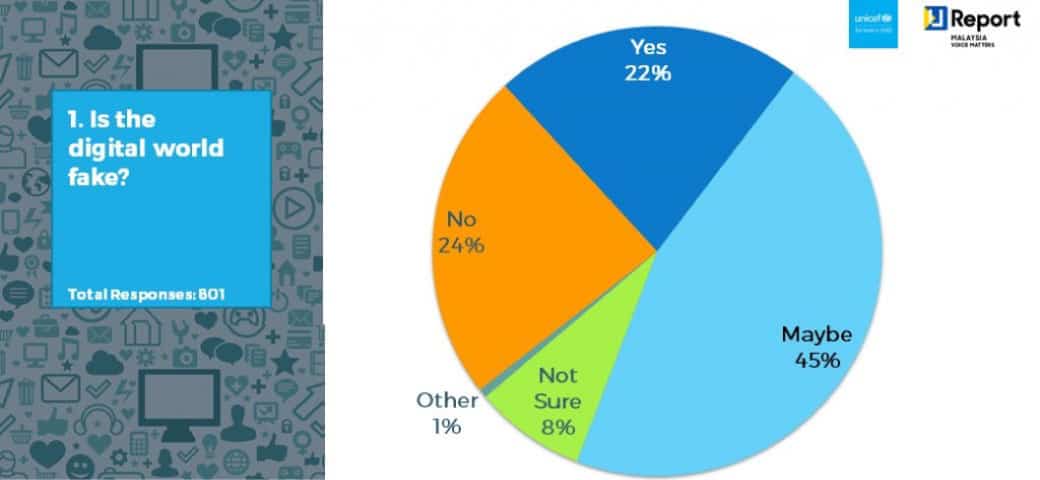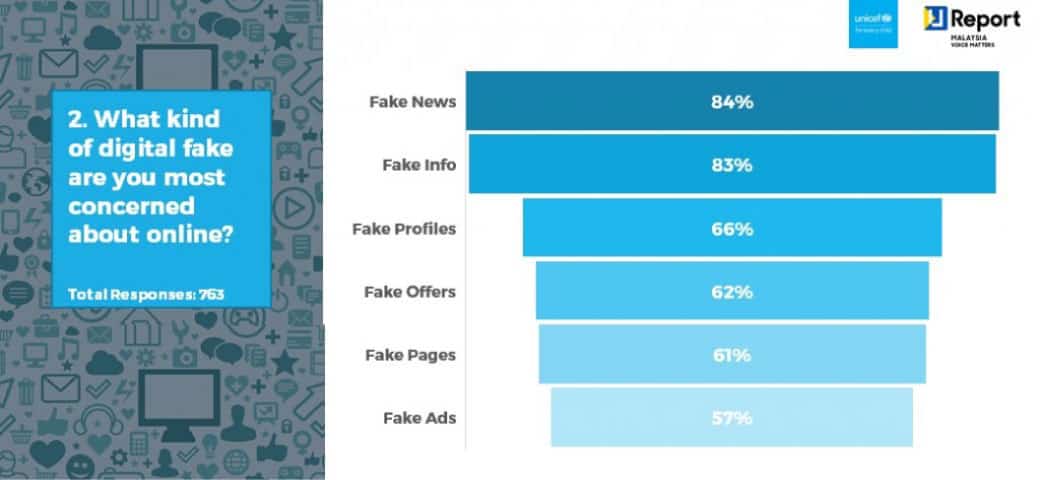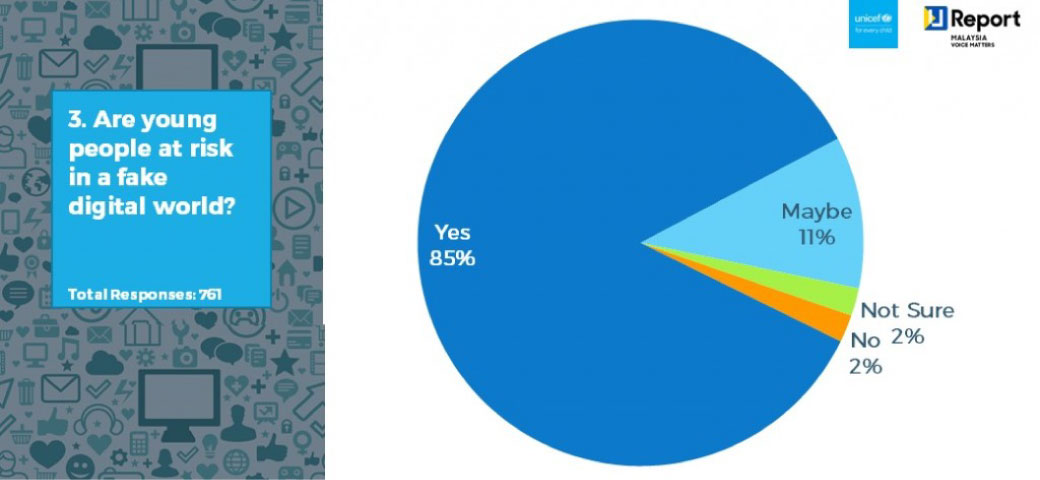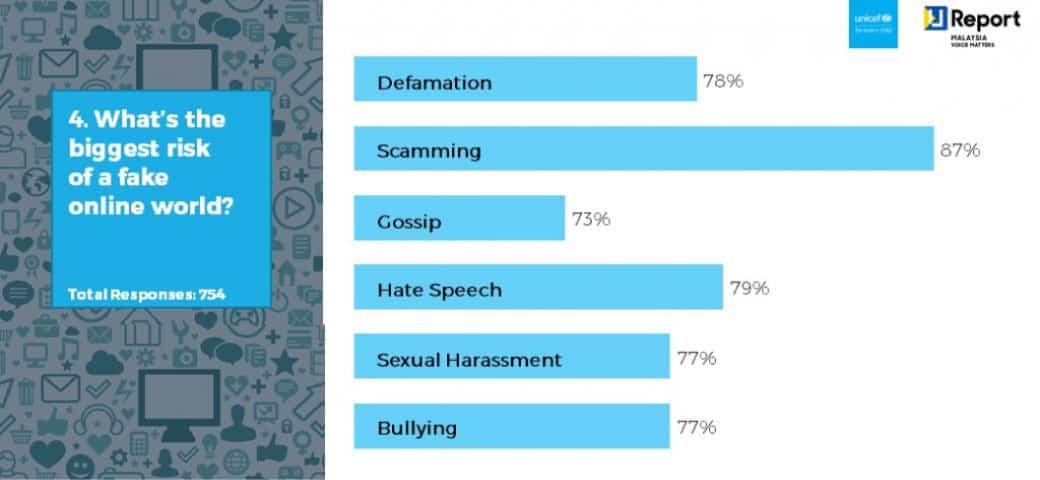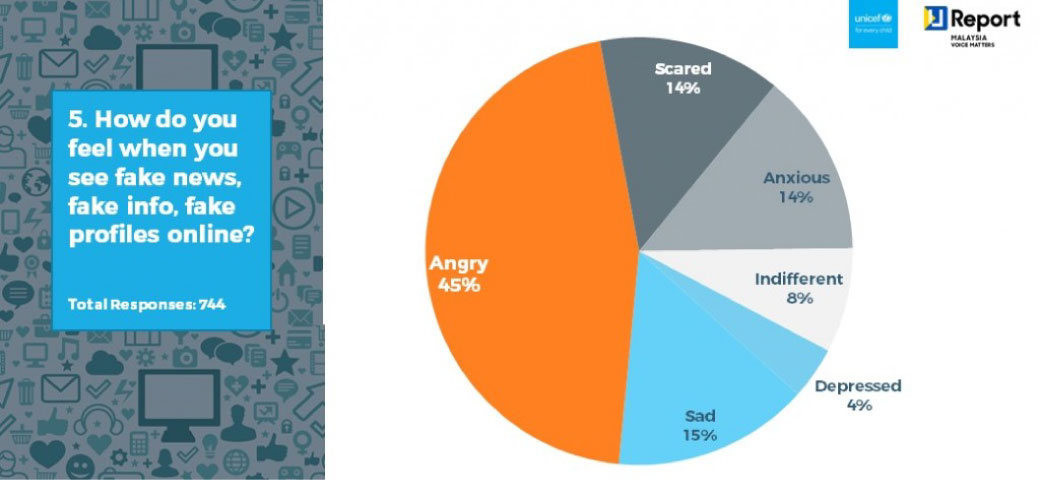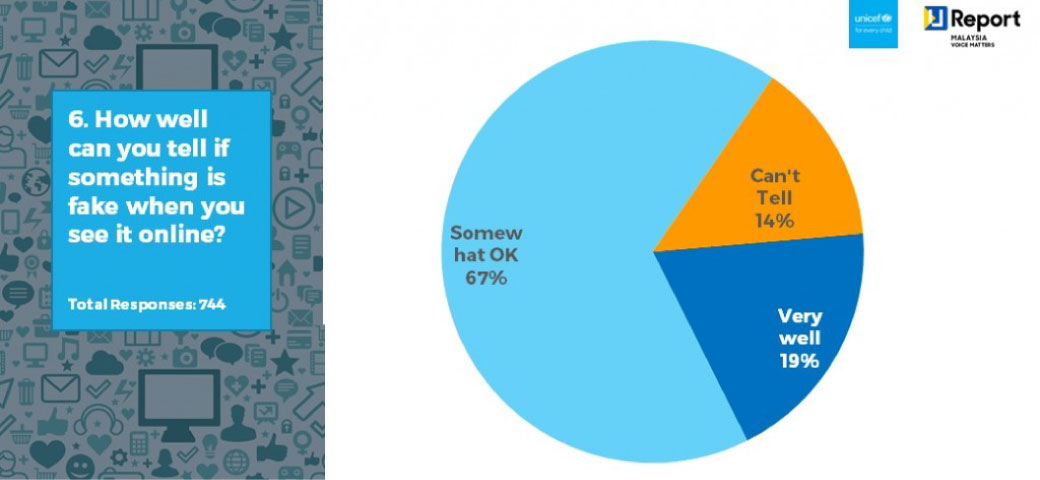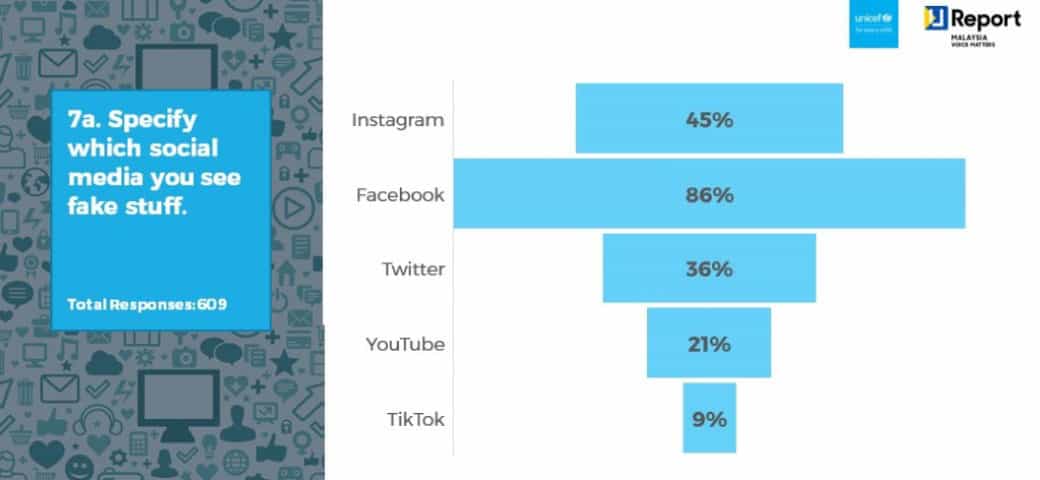The Internet is instant, and it’s everywhere 24/7. But how much of it is real, and how much is fake? What are the risks and what are the solutions to a fake online world?
We put the question to our Ureporters in Malaysia in conjunction with Safer Internet Day, and 801 of them responded to our questions. Here’s what they have to say:
READ >> Poll Report : Your Online World – Fake or Real?
1. 67% say their digital world is fake or maybe fake.
⊗ 2 in 3 say their digital world is fake or maybe fake, while 1 in 4 say it’s not fake.
⊗ 1 in 3 in the 25-30 age group say their digital world is fake compared to 1 in 5 below 19 years old.
⊗ More females (70%) say their digital world is fake or maybe fake, compared to the males.
2. Fake news, fake info and fake profiles top the list of concerns.
⊗ Fake news (84%), fake info (83%) and fake profiles (66%) top the list of concerns.
⊗ Younger respondents are less concerned (60-61%) about fake pages compared to those 31 years and above (70%).
3. Almost all say young people are at risk in a fake online world.
⊗ 85% say young people are at risk of a digital world; while 11% say young people may be at risk.
4. Scamming and hate speech are the biggest risks of a fake online world.
⊗ A majority (87%) say that scamming poses the biggest risk in the digital world, followed by hate speech (79%) and defamation (78%).
⊗ Teens 19 years old and below say scamming (87%); defamation (81%); bullying (79%); and sexual harassment (79%) are risks of a fake online world.
⊗ Teens 19 years old and below are more concerned about sexual harassment as a risk of a fake online world, compared to other age groups.
5. Almost half get angry when they encounter something fake online.
⊗ 45% say they get angry when they encounter something fake online.
⊗ 18% (1 in 5) however feel anxious or depressed when they encounter something fake online.
6. 1 in 5 are confident they can recognise fake when they see it online.
⊗ 67% of respondents say they are only somewhat OK to tell if something online is fake.
⊗ Males are more confident to tell if something online is fake (29%) compared to the female respondents (14%).
7. Social media tops list as platform with most fake stuff.
⊗ 8 in 10 say that they see most fake stuff on social media; while 4 in 10 say they also see it on chat apps.
⊗ 86% say that they find most fake stuff on Facebook.
The children and young people polled also shared various ideas to overcome a fake online world, including practicing caution, and diligence; doing research; comparing information in other trusted sites. Parents and teachers were cited by several young people as being responsible for teaching children how to identify fake stuff online. Here’s some of our favourites:
“We need to change the perspective of how we see the internet. We need to think carefully before making a decision. The internet is very useful for use if we use it properly but the dark side of it is we can’t always guess if the things you see is the truth.”
– Female, 15, Sarawak
“Stay true to yourself, don’t be too quick to trust and judge, don’t live for other people’s approval and be honest.”
– Other, 17, Selangor
“Develop a sense of healthy skepticism. Making sure to fact check whatever information (you) hear especially from dodgy sources (i.e hearsays and media outlets with unverified credibility).”
– Male, 17, Negeri Sembilan
Do you agree with the views above? Share your thoughts with us in the comments below.
Pssssst: If you’d like to share your voice on issues you care about, you should sign up to be a U-Reporter! U-Report allows you to join other young people in Malaysia and across the world to share your opinions and ideas. Kalau nak join, SMS “JOIN” to 69898.

